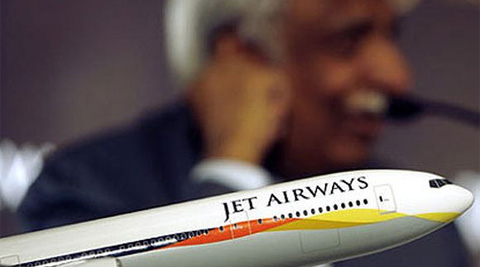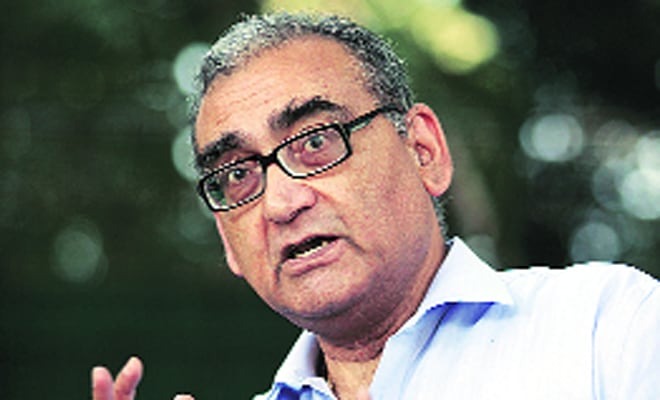When I received the order of the President of India appointing me Chief Justice of Madras High Court in November 2004 I was at Allahabad as Acting Chief Justice of that Court.
I telephoned the Madras High Court and spoke to the Acting Chief Justice, Justice N.Dinkar. Since I was reaching Chennai on Friday at about 1 or 1.30 p.m. I asked him to request all brother and sister Judges of the Court not to come to the airport to receive me, as it was a working day, and it would not be proper to abandon their Courts at working hours. I remembered reading the autobiography of Chief Justice Chagla of Bombay High Court, who wrote that when the Chief Justice of U.S. Supreme Court, Earl Warren, came to Bombay during Court hours of the Bombay High Court, Chief Justice Chagla sent the Registrar of the High Court to the airport to receive him. After Court hours Chief Justice Chagla went to see Chief Justice Warren, and apologized for not personally coming to the airport to receive him as it was court hours. Chief Justice Warren then told Chief Justice Chagla that he acted rightly, and in America the Judges do the same.
I was told that there was a practice in the Madras High Court for all the Judges coming to the airport to receive the new Chief Justice even during Court hours, but I thought that this would not be appreciated by the public, as they would think the Judges are doing sycophancy of the Chief Justice. I told Justice Dinkar that the Judges were welcome to meet me after Court hours at my residence. Accordingly, only lawyers and the Registry officials received me at the airport.
The Judges came to meet me at my residence after Court hours, and we had long talks. I told them they would never need an appointment to meet me, and, unless I was otherwise engaged, could meet me at my residence or chamber whenever they wanted to, and I said the same to the officials of the various lawyers associations.
I was given a warm welcome by the bench and bar in a function and dinner.
At that time the High Court had a sanctioned strength of 49 Judges ( it is now 60), but there were only 26 incumbents, and some more retirements were to take place soon.
A bench of the High Court had recently been created in Madurai, and the rules required that at least 5 Judges should sit there.
Now Madurai was a small town as compared to Chennai. All Judges wish to stay in big cities as there are better educational and job opportunities for children in big towns. So no Judge wanted to sit for long in Madurai. I remember receiving a telephone call from a Judge sitting in the Madurai bench who started crying over the telephone, and said that the previous Chief Justice had posted him in Madurai without his consent, and he had been there for 3 months and had developed blood pressure. I told him that if he could wait for a few days i was going to create a system, after consulting all Judges, about sitting of Judges in the Madurai bench ( till then there appeared to be none ).
I constituted a committee of the 3 senior most judges to consider the matter and give me their report at the earliest. This report was then placed before the Full Court of the High Court, and broadly confirmed. Under this system, 5 Judges would go to Madurai for 2 months, and on their return, the next batch of 5 Judges would go. But I never posted any Judge without taking his consent. After all, a Judge may have personal problems which made it difficult to leave Chennai at a particular time. I also told the Judges that if any of the 5 Judges sent to Madurai had an emergency which required him/her back in Chennai before his 2 month posting was over he could inform me and I would personally go and replace him for the balance period.
Before going to Chennai I had spoken on telephone to Justice Venkatachaliah to seek his blessings, as I have always regarded him as a father figure. He told me that in Madras I must give respect to each and every one of the brother and sister Judges.
Unfortunately, many Chief Justices of High Courts treat brother and sister Judges as subordinates. I am told about one Chief Justice that he would sometimes telephone a brother Judge at 10 p.m and tell him, without taking his consent, that he had to sit next day in some distant bench, for which a flight had to be taken the same night or early next morning. To my mind this was not proper. The Chief Justice is only first among equals, and not a headmaster.
Following the advice of Justice Venkatachaliah, I always gave respect to brother and sister Judges. I told them that we are one family, their problem is my problem, and vice versa. I would never compel a Judge to sit in Madurai, or do something, without taking his/her consent.
Justice Venkatachaliah also gave me another invaluable advice. He told me that many Chief Justices think that their main job is administrative, and they neglect judicial work. This was a fallacy. He said that the main job of the Chief Justice was to give leadership to the Court on the judicial side, by giving outstanding judgments. Following this advice i delegated almost all administrative work to committees of brother and sister Judges. After all, they were local people who knew about Madras High Court, whereas I was a stranger. Also, this relieved me of administrative work so that I had more time to write judgments.
One of the first things which was done by me was to constitute a 3 judge committee to allot lawyers chambers in the new building which had been built for this purpose, but for some reason was lying unoccupied for 3 years. The committee of Judges did an outstanding job, and within two months chambers were allotted to lawyers in accordance with a rational system.
As I mentioned before, almost half the posts of Judges in Madras High Court were lying vacant when I came to Chennai, and they had to be filled in. I was determined to have good judges in the High Court. After all, an institution is really the human personnel who are manning that institution. A High Court is not the beautiful building of the Court, or the green lawns or colourful curtains. A High Court is the Judges who are manning it, they should be first class people.
Although under the decision of the Supreme Court in the Judges Case only the Chief Justice and 2 seniormost judges of the High Court were to recommend names for appointment, I requested the first 12 judges in seniority to give me a list of lawyers they thought deserved to be elevated, and I also consulted about 5 or 6 very senior lawyers. Some names were common in many lists, but enquiries were made even about them. In this way after about 2-3 months daily excercise a consensus of 20 names emerged, and I recommended these. I told the Chief Justice of India, Justice Lahoti, about the methodology I had followed, and said that none of these persons recommended had any connection in any manner with me. So it was now entirely upto him to accept them or reject them.
I must say to the credit of the then Chief Minister, Ms. Jayalalitha ( who is also the present Chief Minister )that she never interfered in this process, and never pressurized me to recommend any name for Judgeship, nor did she ever interfere with judicial functions in any manner.Throughout my stay as Chief Justice there was never any problem, as she respected the independence of the judiciary.
I regret that I cannot say the same about another political party in Tamilnadu, who, through their representatives put tremendous pressure on me to recommend certain names for Judgeship whom I found to be totally undeserving. Some of these persons were never even seen in courts, though technically they were enrolled as lawyers. These were obviously party men of that political party which wanted to pack the Madras High Court with its men., but I refused to succumb to this pressure.
I had taken an oath to myself that I would do my duty to Madras High Court, although my parent High Court was Allahabad High Court. The maximum punishment which could be given to me was to refuse to make me a Supreme Court Judge, but I was prepared for this punishment, and would do my duty to Madras High Court, come what may.
On receiving my 20 recommendations the Supreme Court Collegium approved 17 of them, which was a record. But the same political party which sought to pressurize me would not let these appointments go though, and ultimately it was on a P.I.L. by the Madras High Court Advocates Association and an order of the Supreme Court that those appontments of 17 Judges was made, which was a record for Madras High Court. These Judges had been carefully scrutinized by me and my Collegium members before recommending them, and I am happy to note that most of them have justified my expectations.
I will write more about my experiences in Tamilnadu in subsequent posts, but I would like to add here that the people of Tamilnadu throughout my stay there gave me great love and affection, for which i will be ever grateful.








